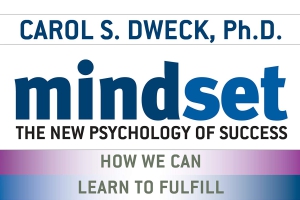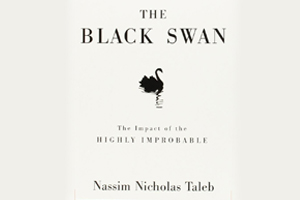Author: Tren Griffin
If you are interested in the investing ecosystem, chances are high that you must have encountered Charlie Munger in some form or the other. Almost a century old now, US based Munger is an American billionaire investor, businessman, and former real estate attorney. Popular as the vice chairman of Berkshire Hathaway, Warren Buffett’s investment conglomerate, Munger has been Buffett’s closest partner and right-hand man, creating an investment legacy like no other. Considered the complete investor, Munger’s entire life can be viewed as a series of lessons for investors and Charlie Munger: The Complete Investor is Tren Griffin’s ode to the legend.
Offering you a horde of Munger’s quotes and anecdotes, the book is a treasure trove of insight into Munger’s investing psyche. In addition to the quotes and life stories from Munger, Griffin has weaved in anecdotes and lessons from other major investors, including Warren Buffett and Seth Klarman, making the treatise a veritable handbook for any investor. Another factor enhancing the readability of the book is that it is not solely based on investing. Yes, investing is the central focus of the book. But it also offers vignettes on ethics and morality, rounding out the entire experience. For instance, being reliable is something the book stresses on, and it is a life lesson for all of us, irrespective of our investment traits and ideologies.
Key Takeaways
- It is important to calculate, but do not only focus on calculating without putting in adequate thought.
- You need to be able to spend time with your thoughts if you are keen on becoming a successful value investor.
- You should be able to understand and explain your failures – only then can you succeed.
- Even if people are not smart or absolutely diligent, they can grow through consistent learning.
- A year in which you don’t change your mind on some big or important idea, is a wasted year. Change should be an active part of life.
- It is important to recognize reality, even when you may not like it.
- Value investing is built on choosing bets with huge upsides and limited downsides. This is called positive optionality.
- To be successful, you have to be very patient, along with being aggressive at the right time.
- Reading, without thinking and reflecting on what you have gone through, is a waste of time.
- If you wish to be a successful investor, you must avoid being dominated by emotion. Instead, respond rationally and logically to market fluctuations.
- A year in which you don’t change your mind on some big or important idea, is a wasted year. Change should be an active part of life.
- It is important to recognize reality, even when you may not like it.
- Value investing is built on choosing bets with huge upsides and limited downsides. This is called positive optionality.
- To be successful, you have to be very patient, along with being aggressive at the right time.
- Reading, without thinking and reflecting on what you have gone through, is a waste of time.
- If you wish to be a successful investor, you must avoid being dominated by emotion. Instead, respond rationally and logically to market fluctuations.
Investing and living well can be quite similar at times. Many of the tenets that guide good investing are relevant in our daily lives too, and lessons from Charlie Munger’s life can guide you in both – leading a good and satisfactory life as well as becoming successful investors.
Approach to value investing
If you do not sit with your own thoughts and understand the rationale behind the decisions you take, you cannot lead a thoughtful life. The shortcut to being smart is to simply avoid being stupid, and this can only be accomplished by understanding why you take stupid decisions. Further, it is imperative to know what you do not know, since that forms the base of your decisions. If you are self-aware and realise that you do not know something, you can take proactive steps to correct this, putting yourself on track to taking more informed decisions. This is true for investing too – it is better to stick to the aspects within your circle of competence, instead of following trends blindly.
Ben Graham and the Principles of Investing
The father of value investing, Ben Graham, is someone highly respected in the investing landscape and both Munger and Buffett consider themselves disciples of the Graham method. Accordingly, Munger follows four fundamental tenets of the investing method. These include:
- When you buy shares you must understand that you have bought a piece of ownership in the company
- You must buy only why there is significant margin of safety
- You must not become a slave to the market. Instead, you should assume that the market is there to serve you
- Finally, and most importantly, you must stay true to the above three tenets
Munger is also very conscious of his own biases – and his advice is that you should be aware of your psychological biases, to avoid falling into consequent traps.
Importance of constant learning
If there is one thing every smart person swears by, it is the importance of reading and learning new things, at all times. Both Munger and Buffett are proponents of constant learning. The value of their approach is evident in the success that they have achieved – Berkshire Hathaway is one of the most successful investment companies in the world. Munger’s success as an investor has relied on his unwavering desire to learn new things through the years, turning him into an actual learning machine. In fact, both the legendary investors dedicate 80% of their time to reading, thus gaining tremendous knowledge on a daily basis.
Focus on simplicity and build on pre-existing knowledge
Munger is of the opinion that it is best to stick to what you know, instead of venturing out into the unknown, armed with little or no information. The actual Graham method of investing is based on simplicity, focusing on doing things or taking decisions which are within your circle of competence. That does not mean that you should not develop new competencies or skills. Instead, it means that you should take decisions only when you have enough knowledge and understanding of the different aspects forming the decision. In Buffett’s words, investing is simple, but that does not make it easy. Great investing comes from a realistic approach, patience, and the courage to take informed risks.
Keep an eye on long-term opportunities
When buying the shares of a company, or making an investment, remember that you are taking part ownership of the business. Do not follow trends and market cycles blindly. Instead undertake proper and efficient valuations to identify the underlying facets and consider the core business metrics to assess profitability. For long-term opportunities and strong gains, look for companies with good valuations and wait to buy these at a discount. If you pick a price too close to the actual value of the shares you purchase, you will have limited scope when it comes to dealing with future volatility. Finally, maintain a level of rationality when it comes to investing – giving in to emotions, in line with market volatility, can set you up for a loss. Do not be ruled by envy or greed, focus on the opportunities and look at the market as an ally for long-term opportunities. To keep your rationality in place, create a checklist and divide tasks into simple blocks. This prevents you from taking irrational and emotional decisions, saving you from your own biases. Try to foster rationality in all your daily actions and decisions, thus turning into a fundamental tenet of your life.
Life lessons are relevant to investing
Do not make the mistake of thinking that your life lessons are different from investing tenets. Good attributes like rationality, courage, patience, reliability, among others, form the basis of both – a good life and a successful investing strategy. Learn to apply wisdom from a variety of different disciplines to enhance your investing decisions. The principles of worldly wisdom can come in very handy even in investing and Munger channels these principles into every investing choice he makes. Having an understanding of different subjects like history, mathematics, physics, psychology, philosophy, and biology can help you understand yourself and your biases better – making you, in turn, a better and more rounded investor. You can become a savvy investor by studying your decisions and thought processes through the lens of these principles, helping you take better decisions going ahead. While it is difficult to build inter-disciplinary expertise, you can focus on the core of the disciplines and, with the accumulated knowledge, make better choices – both in life and in investment decisions.
If there is one clear thing to understand here, it is the fact that investors become successful because of the way they look at their decisions and take conscious choices. Yes, Munger is an exceptional investor, but his excellence does not come naturally. It comes through a recipe of stringent and conscious practices, from continuous learning to simplicity and patience. Munger has not created a new way of investing or thinking, he has just cracked the code on successful investing by adhering to the guiding principles of life. He has used all the knowledge garnered from years of learning and analysis to perfect a method which holds him in good stead, through market ups and downs, and it is a method that all of us can imbibe, given adequate motivation and dedication. Indeed, if you follow his tactics, and add dollops of courage and worldly wisdom to the mix, no one can prevent you from becoming a successful investor and a successful human being. After all, the guiding principles are the same for both! In Munger’s own words – “To get what you want, you have to deserve what you want. That world is not yet a crazy enough place to reward a whole bunch of people."
A key part of becoming a successful investor is the ability to make the right investment choices. From that perspective, mutual fund investments can be an ideal choice for you, especially if you are keen on following the tenets shared by Charlie Munger. Mutual funds are investment vehicles that pool investor money and then invest it across different investment instruments and strategies based on the scheme mandate. Many mutual funds also follow the value investment strategy propagated by Charlie Munger. Fund managers look to invest in quality stocks that are available at a deep discount and hold it for the long-term. While you can definitely try to adopt the value investing approach in single stock selection, it might be easier for you to go through the mutual fund route and let expert funds managers select the right investments for you and manage your money. By investing in mutual funds, you can easily follow many of the tenets proposed by famous investors and get on the path to financial independence.
An investor education initiative by Edelweiss Mutual Fund
All Mutual Fund Investors have to go through a onetime KYC process. Investor should deal only with Registered Mutual Fund (RMF). For more info on KYC, RMF and procedure to lodge/redress any complaints, visit - https://www.edelweissmf.com/kyc-norms
MUTUAL FUND INVESTMENTS ARE SUBJECT TO MARKET RISKS, READ ALL SCHEME RELATED DOCUMENTS CAREFULLY
Trending Books
MUTUAL FUND INVESTMENTS ARE SUBJECT TO MARKET RISKS, READ ALL SCHEME RELATED DOCUMENTS CAREFULLY.













